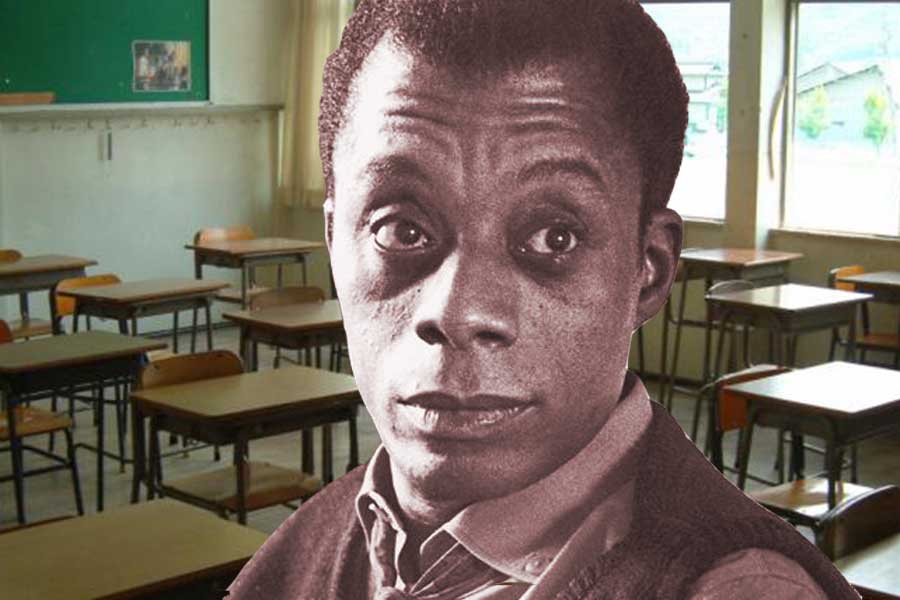An application will be submitted to the Philadelphia School District’s Charter School Office next month that proposes the creation of a new charter school that would have an emphasis on anti-bullying and include an LGBT-awareness curriculum.
The James Baldwin Charter High School would educate students grades nine-12, with a focus on science, technology, engineering and mathematics (STEM). The school would operate out of a site that is currently vacant in West Philadelphia’s Mantua neighborhood.
The application is being spearheaded by a board of trustees that includes Quincy Riley-Greene, executive director of LGBT youth organization Educational Justice Coalition; a University of Pennsylvania professor in the Graduate School of Education; a clinical nurse at the Hospital of the University of Pennsylvania; a school nurse; and a parent.
The board will submit the application to the district by Nov. 15. Community members and stakeholders are invited to learn more about the application at this month’s Q Spot LGBT youth social, 4-8 p.m. Oct. 24 at 3535 Market St., 16th floor, which this month will focus on the charter application.
Riley-Greene said he conceived of an LGBT-friendly charter school nearly a decade ago but saw some resistance from LGBT community leaders. He went on to found EJC in 2007 and launched the Q Spot program in 2011. Their success, coupled with evolving LGBT acceptance and the revamping of the city’s charter-school application process — applications are now accepted once a year, as opposed to sporadic cycles previously — convinced him to revisit the idea.
“Our young people need a space where they will not experience bullying, violence or discrimination and where they can learn without those factors impacting their academic achievement,” Riley-Greene said.
The school could offer an LGBT history course similar to one recently incorporated in a San Francisco high school, Riley-Greene said, noting it would also offer a model for the creation of a gay-straight alliance.
“The focus will be on cultural awareness, diversity and sensitivity so the students can become focused on civility,” he said. “The core idea is to prevent bullying, harassment and violence. A lot of schools in Philadelphia unfortunately see high levels of violence and — especially considering data from GLSEN that shows seven in 10 Pennsylvania students felt unsafe at school because of their sexual orientation— there is currently a lack of options like this in our current district. At the end of the day, it’s about the kids having options.”
James Baldwin Charter High School would not be solely for LGBT-identified students, Riley-Greene added, noting that a recent college fair pioneered by Out4STEM illustrated the power and potential of LGBT and ally students working together.
“We had straight students working right alongside LGBTQ students to develop the event and it showed me this is possible,” Riley-Greene said. “They were all in the same room talking about issues that affect all students, regardless of sexual orientation. And that’s what higher education is about. LGBTQ students are kind of like the canary in the mine; if a space is safe for LGBTQ students, I think it’s safe for everyone else.”
Riley-Greene said the school would seek to enroll about 250 students its first year and increase at the same capacity for several years, capping at 1,000 students. The proposed site where the school would be located is a 30,000-square-foot building that Greene said had been named in several previous charter-school applications.
“It can be outfitted to have classrooms, a gymnasium, cafeteria, lavatories, a library, offices,” he said, noting it’s in a neighborhood that is beginning to see gentrification. “There’s a senior-housing facility across the street, Belmont Charter School is within a few blocks, it’s easily accessible by SEPTA. The landlord is interested in supporting a positive use for this space and we’re working with a Realtor who is working to keep costs within reason and be responsive to the board throughout the whole process.”
If approved, the school would operate on a budget of approximately $2-$3 million per year; the per-student expenditure would be derived from the school district. Riley-Greene noted that the application could be bolstered by additional financial support.
“We are looking for community support, any philanthropists who would like to support an effort of this type,” he said, adding organizers are also seeking letters of support from community members and organizations.
About 40 entities applied for charter-school approval last year and four were initially selected, with another being approved after an appeal process. Riley-Greene acknowledged that the process is a difficult one but noted that, even if James Baldwin isn’t given the green light this year, he’ll continue to perfect the application.
“Even if we’re not approved, once you go through the application process, they give you direct feedback on the application’s strengths and weaknesses and you have an opportunity to appeal. And even if you’re still denied, you can always re-apply next year,” he said. “That gives you time to perfect the model, do additional research and recruit more people who would be willing to work at the school, if approved. So it would be amazing if we were approved this time, but if not, that won’t deter me.”
